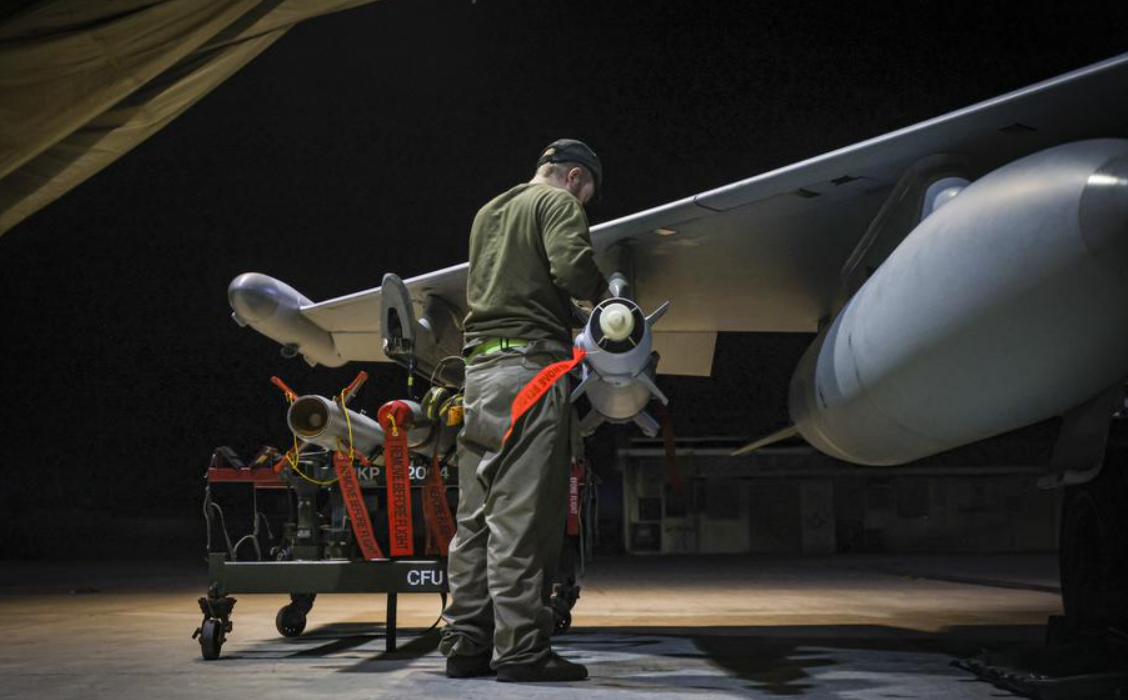The United States and the United Kingdom have carried out a new set of coordinated airstrikes against Houthi targets in Yemen.
The strikes, announced by the Pentagon, targeted eight locations, including an underground storage site and Houthi missile and surveillance capabilities.
The Iran-backed Houthi rebels have been attacking ships they claim are associated with Israel and the West, navigating through the crucial Red Sea trade route.
The joint effort by the US and UK aims to safeguard the “free flow of commerce.”
In a joint statement, the Pentagon emphasized the necessity of these strikes, stating, “Our aim remains to de-escalate tensions and restore stability in the Red Sea.”
The warning to the Houthi leadership reiterated the commitment to defending lives and maintaining the free flow of commerce in this vital waterway.
This marks the eighth time the US has conducted strikes against Houthi targets in Yemen and the second joint operation with the UK.

The recent strikes had support from Australia, Bahrain, Canada, and the Netherlands.
US fighter jets from the USS Eisenhower carrier, along with four RAF Typhoons supported by Voyager tankers, participated in the strikes.
Precision-guided bombs were used to target military sites near Sanaa airfield, aiming to counter the Houthi attacks on international shipping in the Red Sea.
UK Defence Secretary Grant Shapps labeled the strikes as “self-defense” against the Houthi’s “intolerable attacks” on merchant shipping.
The operation, named Poseidon Archer, seeks to degrade Houthi’s capabilities and diminish their ability to threaten global trade.
Despite the strikes, the Houthi rebels, backed by Iran, persist in their attacks on shipping they suspect is linked to Israel, the US, or the UK.
These attacks have garnered popularity domestically and in the wider Arab world, where the Houthis claim to support Hamas as part of the Iran-backed ‘Axis of Resistance’ against Israel.
The recent airstrikes come after a phone call between US President Joe Biden and UK Prime Minister Rishi Sunak, during which they discussed the ongoing Houthi attacks in the Red Sea.
Both leaders emphasized their commitment to freedom of navigation, international commerce, and defending mariners from unjustifiable attacks.
The Houthi attacks on merchant vessels began in November, as a response to Israel’s military ground operation in Gaza.
Despite previous airstrikes in January, the Houthi forces continue their assaults on commercial tankers in one of the world’s busiest shipping lanes.
